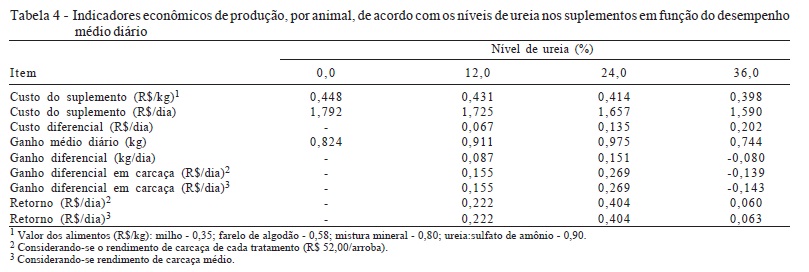The objective was to evaluate productive efficiency, economic performance and supplement intake rate in crossbred steers on pasture during the dry season. Twenty 19-month-old Holstein × Zebu steers with 315±25 kg of live weight were alocated into four paddocks of Brachiaria decumbens with 3.0 ha each. Each animal received 4.0 kg/day of supplement based on ground corn grain, cottonseed meal, mineral mixture and urea/ammonium sulfate in four levels (0, 1.2, 2.4 and 3.6%) as fed basis. Final live weight and average daily gain presents quadratic behavior. Maximum responses estimated were observed at levels 1.67% (399.9 kg) and 1,60% (0.956 kg/day) urea, respectively. Hot carcass weight, carcass yield, the proportions of muscular, fat and bone tissues and the muscle:bone in the carcass ratio were not influenced by the levels of urea in the supplements. The economical evaluation of the supplements, unlike the treament without urea, showed greater economic efficiency for supplement containing 2,4% of urea. As urea levels were increased, more time was observed for total consumption of the supplements.
non-protein nitrogen; supplementation at pasture; weight gain







